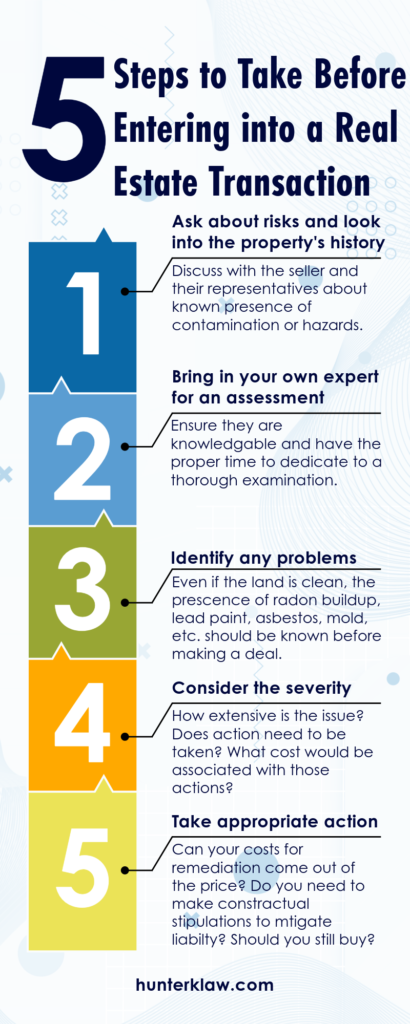Before purchasing real estate that may need development or major future work, it would behoove you to understand what environmental policy may come into play. This will pertain specifically to the United States at large and my home state of Massachusetts. It is worth noting that every state has its own unique laws and regulations and there are also often local ordinances imposed by towns and counties that may apply, so it is imperative that you thoroughly examine everything that may affect your property. What I will talk about is non-exhaustive, but a good starting point.
I believe the biggest thing to make yourself aware of any land-use controls imposed on the area that you are intending on purchasing and ensuring that they are not in conflict with the plans you have therefor. In the state of Massachusetts, M.G.L. Chapter 40a grants zoning authority to cities and towns by adopting “ordinances and bylaws to regulate the use of land, buildings and structures.” This may not be a novel concept, but the zoning of the property and all the stipulations should be understood. In some situations, it can be possible to rezone a property but that is not a guarantee and it would be wise not to make an investment contingent on rezoning without first communicating with the people involved in the process to receive some assurances.
Commercial/industrial/residential zoning may be easier to have changed, but it is entirely situational and is not always possible. Zoning in favor of conservation, on the other hand, is typically immalleable and exemptions will not be made. What’s more is that there are many instances of land under conservation protections, such as under the Wetland Protection Act in Mass (M.G.L. 131 § 40) that are not always even known to exist on a property, but could nonetheless lead to a hard stop on a project if discovered in an inspection. That is another reason it is so important to bring in your own surveyors to further ensure you will be able to do what you plan.
Another important consideration is the potential presence of contamination and the actions you’d be expected to take towards affirmative remediation. If it were to be discovered after you already own the property there is a chance you are open to substantial liabilities. Under CERCLA, the Comprehensive Environmental Response, Compensation, and Liability Act (42 U.S.C. § 9601), the release or threatened release of any hazardous substance must be reported to the National Response Center and cleaned up. Under 42 U.S.C. § 9607, there are severe penalties to the owner of the property if conditions are not met.

Many hazards can exist within the home, as well. Lead paint, radon, asbestos, and mold can all cause harm. The age of the structure can give you a good idea of whether or not lead paint and asbestos were used in construction, but test kits are cheap and readily available. Radon can seep through the foundation from the Earth and build up inside which creates potential long-term dangers for inhabitants. It is also good to mind the humidity, especially in old basements, because it poses a greater risk of the growth of mold. Also check for water damage on top floor ceilings and around windows (especially around skylight windows). Softness of the building materials or sagging/deformations can expose such damage. Staining is often an easy giveaway, but sleazy sellers commonly paint over them instead of repairing the source of the leak. It can also be a good idea to tour the property when it’s raining because that renders it near-impossible to hide water drainage issues. This applies for much more than environmental concerns, but water can bring mold almost as quickly as rot.
There is nothing wrong with investing in dilapidated real estate with the intention of fixing it up and reselling it. In fact, I would view it as a great service to the community and any future homebuyer by improving the neighborhood. However, many of these for-profit real estate “flippers” will cut every corner in an attempt to gross a higher return on their investment. This not only gives a bad name to many reputable real estate developers and their contractors, but is unfortunately common enough that everyone should be on the watch for some of those practices. Simply pooling through a property’s transaction history can shed light on some of these instances, but the unsavory practices are utilized by many sellers. Brining inspectors with you to tour the property is a great way to learn about how to spot quality and questionable craftsmanship.
